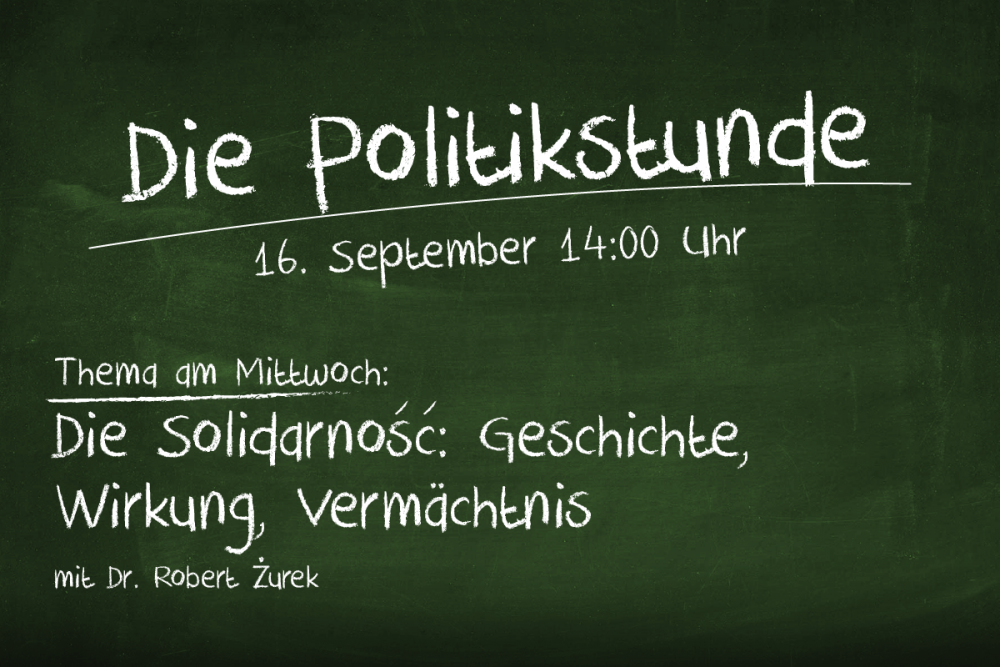 On Friday, 11 September, in the St. Marienthal International Meeting Centre (IBZ-Internationales Begegnungszentrum St. Marienthal) in Ostritz there was a official opening of the Polish Language Competence and Coordination Centre (KoKoPol). During the inauguration of the Centre, a cooperation agreement was also signed with the "Krzyżowa" Foundation for Mutual Understanding in Europe, under which, among other things, language and cultural training for German diplomats, employees of companies and their management boards will be held in Krzyżowa.
On Friday, 11 September, in the St. Marienthal International Meeting Centre (IBZ-Internationales Begegnungszentrum St. Marienthal) in Ostritz there was a official opening of the Polish Language Competence and Coordination Centre (KoKoPol). During the inauguration of the Centre, a cooperation agreement was also signed with the "Krzyżowa" Foundation for Mutual Understanding in Europe, under which, among other things, language and cultural training for German diplomats, employees of companies and their management boards will be held in Krzyżowa.
The Polish Language Competence and Coordination Centre is to support and strengthen existing initiatives to promote the Polish language in Germany, to promote a positive perception of the Polish language and to organise practical language training related to professional careers (e.g. for diplomats).
Read more: The Krzyżowa Foundation has signed a agreement with the newly established Centre for Polish...
 It is with deep sadness that we received the information about the death of Janisław Muszyński (9.10.1942-10.09.2020), the first non-communist Wrocław voivode, initiator and organizer of the Lower Silesian Political and Economic Forum in Krzyżowa, a long-standing friend of the Krzyżowa Foundation for Mutual Understanding in Europe.
It is with deep sadness that we received the information about the death of Janisław Muszyński (9.10.1942-10.09.2020), the first non-communist Wrocław voivode, initiator and organizer of the Lower Silesian Political and Economic Forum in Krzyżowa, a long-standing friend of the Krzyżowa Foundation for Mutual Understanding in Europe.
It is thanks to the vision and determination of Janisław Muszyński that for fifteen years (1999-2013) Krzyżowa turned into Davos in Lower Silesia, where representatives of politics, business, science, non-governmental organizations and culture met to exchange opinions and learn from each other. The main idea of the forum was to initiate and sustain discussions on what to do to make Lower Silesia a good place to live. It was a very rare thread of all talks about the development of regions, and Janisław Muszyński made it the basic issue of all editions of the Lower Silesian Political and Economic Forum in Krzyżowa. It was an event thanks to which Krzyżowa attracted the attention of national media and hosted foreign business representatives, many of them contributed to the development of the region in a very tangible way, investing their capital here and creating jobs.
Janisław Muszyński wanted to see Lower Silesia as the land of Polish-German reconciliation, also on the level of joint activities for the economic development of Europe. The transnational cooperation, which was also part of the mission of the Krzyżowa Foundation, was the joint goal of the activities of the foundation and Janisław Muszyński, therefore we say goodbye to the great friend of Krzyżowa - place, people and ideas - with great regret.
We express our deepest sympathy to the family and friends of Janisław Muszyński.
Read more: Farewell to Janisław Muszyński

Last Wednesday, on the website and other channels of Bundeszentrale für politische Bildung, it was possible to watch a LIVE meeting with Robert Żurek - Managing Director and member of the Board of the Krzyżowa Foundation. The topic of the conversation was Solidarity - history, influence and legacy.
"40 years ago in Poland, a mass movement and the Solidarity trade union emerged from the strike movement. Its members stood up in solidarity and courageously for human rights. In this way they accelerated the collapse of real socialism in Eastern Europe and contributed to overcoming the division of Europe. At the same time, the movement was a school of civil responsibility, a value-oriented attitude, constructive conflict resolution and cooperation beyond all differences. Together with Robert Żurek from the Krzyżowa Foundation, we discussed the beginnings of the movement, its role in the period of change and its significance for Polish society.
Read more: LIVE with Dr Robert Żurek [Die Politikstunde, BPB] - Wednesday, 14.00, 16.09.2020

What happened in May 1945? What is the memory of contemporary Polish people about the war and its end? These are just some of the many questions that historians are answering in specially prepared recordings, which you will soon be able to find on our website in the form of podcasts.
In connection with this year's 75th anniversary of the end of the Second World War, the Krzyżowa Foundation, in cooperation with the Silesian Institute, has prepared educational materials for school children and teachers, the aim of which is to present the broadest possible perspective on the events of 1945. One of the elements of the educational package will be podcasts with the participation of experts.
Read more: Project "Patriotism of Tomorrow". Historical podcasts soon available on the Foundation's website!







